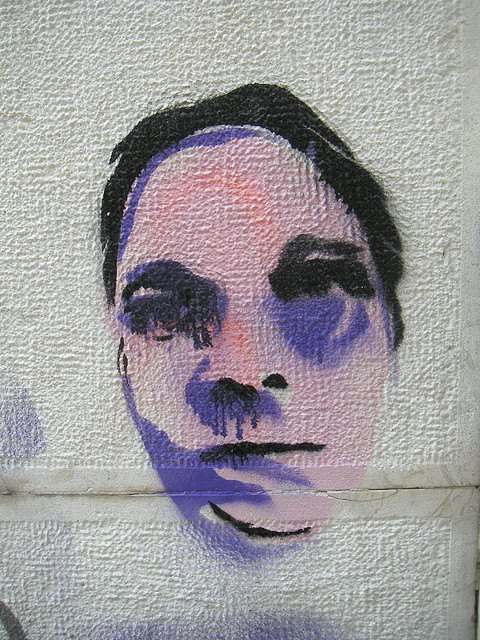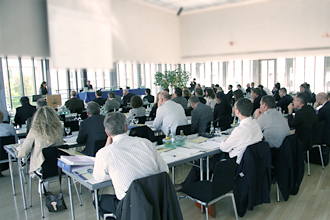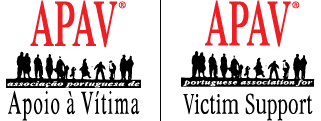
European Parliament approves EU-wide civil law protection for victims
 Victims of stalking, harassment or gender-based violence who are granted protection in one member state will get equivalent protection if they move or travel to another, without having to go through time-consuming formalities, thanks to a new law passed by Parliament on Wednesday. These civil law rules complement the European Protection Order, which already provides similar protection under criminal law.
Victims of stalking, harassment or gender-based violence who are granted protection in one member state will get equivalent protection if they move or travel to another, without having to go through time-consuming formalities, thanks to a new law passed by Parliament on Wednesday. These civil law rules complement the European Protection Order, which already provides similar protection under criminal law.
The regulation, to apply directly in all member states, will ensure that protection granted in one is maintained when the victim moves or travels to another. It will also simplify the application procedure for protection, by removing all today's intermediate formalities.
"We must make applying for protection more straightforward for victims, so that they are protected whenever they travel or move to another member state" said Antonyia Parvanova (ALDE, BG), Parliament's co-rapporteur on the civil law protection regulation. "Ensuring that victims of gender-based violence can obtain specialist support services from properly-trained officials anywhere in the EU is an important part of this protection", she added.
Co-rapporteur Antonio López- Istúriz (EPP, ES) said: "We want to make sure that any victim of crime can get protection and still move freely throughout the EU. This will allow us to strengthen the area of freedom, security and justice in the union. I am proud that we can offer better and safer future, especially to women and children".
This regulation on civil matters, covering threats to people's physical and psychological integrity, including threats to personal liberty, security and sexual integrity, complements the European Protection Order (EPO) Directive on criminal matters. Together, the two instruments will cover the broadest possible range of protection measures taken by member states.
To ensure that the protection is recognised and enforced throughout the EU, the regulation includes a standard multilingual certificate, which gives all the essential information. Using this certificate should keep translation costs to a minimum, so that in most cases there will be no extra costs for the protected person.
The resolution was passed by 602 votes to 23, with 63 abstentions. Once it is formally approved by the Council of Ministers, the regulation will apply from 11 January 2015. Denmark will not be participating.
Source: European Parliament / News
APAV reunited with Members of the European Parliament from the Committee on Women's Rights and Gender Equality
On May 2nd, APAV met with a delegation of Members of the European Parliament from the Committee on Women's Rights and Gender Equality of the European Parliament (FEMM).
The delegation, which also included Portuguese Members of the Parliament as interlocutors, held meetings with Portuguese non-governmental organizations with the aim of gathering information on the "feminine face of the crisis in Portugal."
APAV was represented at this meeting by Carmen Rasquete, Secretary-General, who presented the work of the Association as a national organization to support victims of crime, with emphasis on the profile of women victims of crime and violence and its context of victimization.
Conference: Crime victims’ access to justice in the European Union

On the 18th and 19th of April the Academy of European Law organised in Trier a conference on the topic of crime victims’ access to justice in the European Union (EU).
The seminar focused on the analysis and discussion of the new Directive of the European Parliament and of the Council establishing minimum standards on the rights, support and protection of victims of crime and on the mutual recognition systems for protection measures within the EU.
The seminar was enriched by the active participation of several judicial practitioners and jurists of victim support organisations from various European countries: France, Belgium, Romania, Spain and Portugal.
The Victim Support Europe Annual Conference 2013 | May 29th – June 1st | Edinburgh
The Victim Support Europe Annual Conference 2013, “Supporting Victims of Crime in Europe”, is going to take place between May 29 and June 1 in Edinburgh, Scotland.
This event will bring together criminal justice professionals, EU Members States representatives, academics, policymakers and victim support practitioners to discuss new developments and best practice in relation to victims of crime in Europe.
It will also host a discussion and debate about the implementation of the EU directive on victim’s rights and steps to ensure successful delivery, the rights of victims of crime, the impact of human trafficking, cross-border victimisation and ways of effectively delivering services to victims of crime.
The event will include speakers from the European Parliament, the Irish EU Presidency, Justice Ministries and other international experts in the field of justice and victim’s rights.
To find out more about registration, programme and practical information, visit the conference website:
APAV launches the campaign “Your Safety is not a Game. Stay Connected.”
Between 2000 and 2011, APAV processed 7,387 cases of children and youth victims of crime and violence, which altogether amount to 11,261 crimes committed against children. Among these cases, crimes against property became the third most frequent, but were relatively low when compared to crimes committed against persons. This fact is indicated by the low level of complains and requests for help from younger people when it comes to crimes of this nature.
 To address these problems, APAV sought to produce and disseminate to a younger audience easy-to-follow information and resources on violence. The resources will also touch on the importance of reaching out for help and assistance, and on ways to adopt personal safety and protection measures.
To address these problems, APAV sought to produce and disseminate to a younger audience easy-to-follow information and resources on violence. The resources will also touch on the importance of reaching out for help and assistance, and on ways to adopt personal safety and protection measures.
So with the help of Ideias com Pernas, APAV developed the educational and awareness-raising campaign website, www.apavparajovens.pt. Sponsored by Cupido, this campaign is also fortunate enough to have young actors Mikaela Lupu and Ricardo Sá involved to help deliver an important message to a younger audience: “Your Safety is not a Game. Stay Connected”. This project draws attention to the possible dangers that one might encounter when walking on the streets, teaching younger audiences how to adopt personal safety and protection measures.
The dissemination of this project has begun since December 2012, with joint efforts from Master’s and PhD’s students, public and private secondary schools, Facebook networks, partner institutions and mass media. Partner organizations in Scotland and Sweden also provided tremendous help and support in disseminating the message to the targeted audience.
This initiative is done under Project LEAD – Inform to Prevent, which was promoted by APAV and financially supported by the Directorate-General Justice of the European Commission. All of this is made possible under the programme DAPHNE III, involving national partners, the Foundation of Youth, ISCTE (Instituto Universitário de Lisboa), as well as international partners – namely, Victim Support Scotland (Scotland) and Crime Victim Compensation and Support Authority (Sweden).









